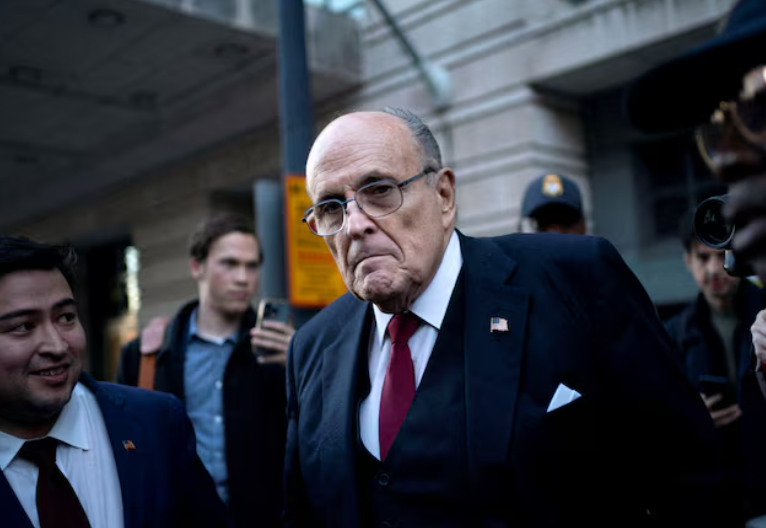In a significant legal development, a U.S. Bankruptcy Court has dismissed Rudy Giuliani’s Chapter 11 bankruptcy filing, ending a six-month freeze on a $148 million defamation judgment owed to two Georgia election workers.
This decision removes a legal shield that had protected the former New York City mayor from his creditors.
U.S. Bankruptcy Judge Sean Lane issued a 22-page ruling on Friday, citing Giuliani’s “continued failure” to provide financial transparency.
“Mr. Giuliani has failed to provide an accurate and complete picture of his financial affairs in the six months that this case has been pending. Transparency into Mr. Giuliani’s finances has proven to be an elusive goal,” Lane wrote.
Giuliani had been under mounting pressure from his creditors, who accused him of acting in bad faith and potentially committing bankruptcy crimes—allegations Giuliani denies.
Ultimately, Giuliani consented to the dismissal, although he has vowed to appeal the defamation judgment.
Defamation Judgment Unfrozen
The dismissal allows Georgia election workers Ruby Freeman and Shaye Moss to resume efforts to collect their $148 million defamation award.
This judgment stemmed from Giuliani’s baseless conspiracy claims that the two workers committed election fraud in 2020. The Chapter 11 filing had automatically stayed their case, along with other civil lawsuits against Giuliani, allowing him to retain control of his assets.
Giuliani’s creditors had long viewed the bankruptcy as a delay tactic, accusing him of hiding assets and excessive spending.
The election workers’ lawyers argued that bankruptcy law would have ultimately prevented Giuliani from discharging the substantial judgment.
Judge’s Critique and Dismissal
Judge Lane’s ruling highlighted significant issues with Giuliani’s financial reporting, including his struggle to retain an accountant, which he described as “a clear red flag.”
Lane noted:
“When confronted with complaints about a failure to satisfy the Bankruptcy Code’s obligations as to financial transparency, most debtors will respond by curing at least some — if not all — of the defects. By contrast, Mr. Giuliani has done nothing.”
The ruling also blocks Giuliani from filing for bankruptcy again for the next year.
Impact on Creditors
With the bankruptcy dismissed, Freeman and Moss can pursue their original lawsuit to collect the judgment.
However, due to Giuliani’s limited assets, primarily consisting of properties in New York and Florida, they are likely to recover far less than the $148 million.
Their attorneys argued that continuing in bankruptcy would result in much of the available funds going to professional fees.
Attorney Rachel Strickland, representing Freeman and Moss, stated:
“It is in the interest of creditors, for the victims of this man, to have their claims heard in the forums of their choosing, which are better positioned than the bankruptcy court to hear and decide these claims.”
Implications for Other Creditors
The dismissal may disadvantage other creditors whose lawsuits against Giuliani are in earlier stages. The official creditors committee, which includes Dominion Voting Systems and Noelle Dunphy, had sought to appoint an independent trustee to oversee Giuliani’s finances. However, Judge Lane rejected this proposal, citing little reason to believe Giuliani’s uncooperative behavior would change with a trustee.
Despite resisting these drastic proposals and claiming intentions to propose a reorganization plan, Giuliani ultimately agreed to dismiss his bankruptcy under increasing pressure and the judge’s refusals to allow appeals.

